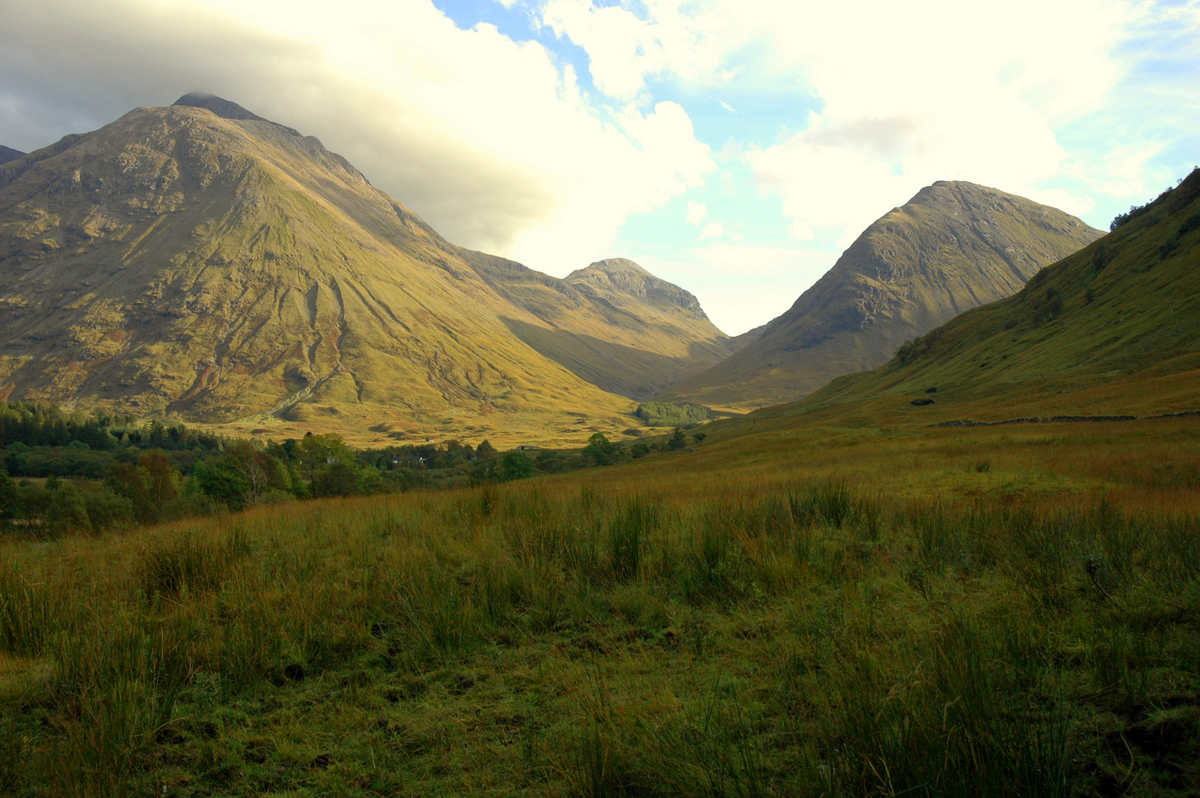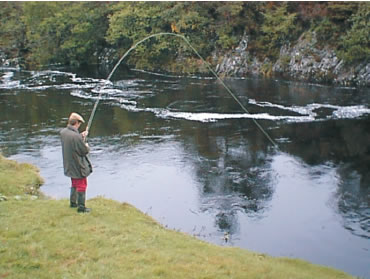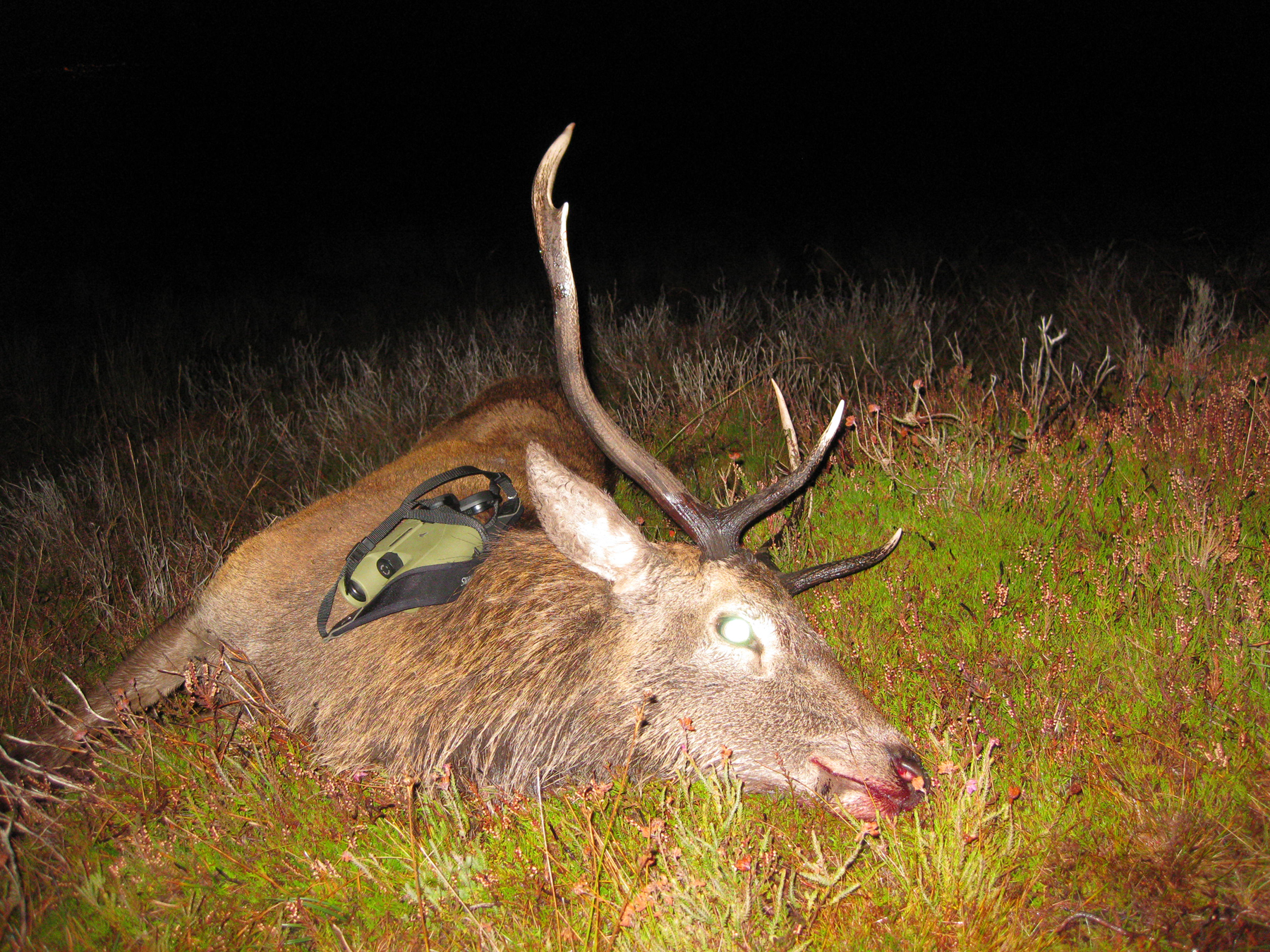
By Kim Sawyer
Kim Sawyer, a farm manager and gamekeeper in Scotland, is responsible for maintaining the health and quality of the deer herd on a very large estate. An essential component of this is "culling the herd" and the removal from it of older, unhealthy, and excess animals to keep it in balance with the environment. He sent this moving account of one of the less pleasant—but nonetheless necessary—aspects of his work.

Well, with two clients having left yesterday, I woke this morning knowing that, for the first time in months, both the lodge and the holiday cottage were empty and the day, for once, was my own. At 7:00 am, just as dawn was breaking, it didn't really sound like much of a day, what with the wind buffeting the house and rain slashing hard at the west facing windows. But it faired up quickly enough with the rising of the sun.
 I had three cups of strong coffee, then decided to get on with a job I had been putting off since the end of the salmon season on September 30th: filling in the 2011 migratory fish return for the Scottish Marine Department. The annual rod catch of salmon, grilse and sea trout have to be logged, reporting those fish that were kept and those that were returned, with the numbers and total weight by the month. That pressing item having been dealt with, I decided to take a break and reward myself and the dogs with a walk along the riverside. The fall colours are pretty good here just now, with the butter yellow of the aspens and birches contrasting starkly with the red and crimson leaves of the big, old bird cherries. The half mile walk to the lodge and back was made doubly interesting when the dogs flushed two more woodcock. That's three days now that I have seen woodcock, so they must already be here in some numbers. Perhaps they're moving in front of the snow that is forecast for later in the week.
I had three cups of strong coffee, then decided to get on with a job I had been putting off since the end of the salmon season on September 30th: filling in the 2011 migratory fish return for the Scottish Marine Department. The annual rod catch of salmon, grilse and sea trout have to be logged, reporting those fish that were kept and those that were returned, with the numbers and total weight by the month. That pressing item having been dealt with, I decided to take a break and reward myself and the dogs with a walk along the riverside. The fall colours are pretty good here just now, with the butter yellow of the aspens and birches contrasting starkly with the red and crimson leaves of the big, old bird cherries. The half mile walk to the lodge and back was made doubly interesting when the dogs flushed two more woodcock. That's three days now that I have seen woodcock, so they must already be here in some numbers. Perhaps they're moving in front of the snow that is forecast for later in the week.
By the time I got to where I wanted to be—a bank of short heather with a slight depression that would afford me some shelter from the biting, northerly wind—the sun was already below the horizon. But the light was good for another half hour at least. I immediately spied an eight pointer lying by himself 300 yards to my right front. But being too young and with a promising head, he was immediately out of the frame.
Two stags were roaring on the hillside about three quarters of a mile distant and about eight hundred feet above me, but with big bedding heather all around them they looked to be in a fairly settled position. So I would have to pin my hopes on a stag that was roaring very much closer but still out of sight, behind a bank of long, rank heather and rushes about four hundred yards distant to my left front. I could see the backs of three hinds showing above the bank, so had a fair idea where he was. But his quality, or lack of it, was as yet unknown. And it would be a full twenty minutes before he showed himself on the skyline, allowing me to determine that he was an old stag with a very poor head that was going back. He stood broadside at two hundred yards and, with finger on the trigger, I looked at him through the 'scope. His antlers were long and thin, pointed and deadly. And he was clearly pugnacious, roaring constantly, had done so for the last two weeks.
I knew him well, this old boy, and he was a real survivor. The light was failing fast when he decided to answer a stag in the distant west, and turning, walked away from me, back over the bank and out of sight. He remained there, roaring, for another ten minutes, whilst I cursed silently. By this time the light was failing fast. A hind and a calf appeared on the bank, moving toward me, grazing as they came. They halted just forty yards from where I was lying. Dimly, through the gloaming, I could make out the movement of more beasts coming off the bank and toward me, but I was loath to reach for my binoculars to check, with the hind and calf standing so close.
The hinds stood frozen for a moment, startled by the close proximity of the shot, then bunched and began to make their way back west. I waited until they were out of sight before I rose from the heather, not wanting to alarm them any more than was necessary. I walked over to the stag lying dead on the heather. By now it was almost completely dark. Upon close examination, running my hand over him, I knew I had done the old boy a favour; his flanks were hollow and the pelvic bone was showing too starkly. Even more telling, the backbone was hard, fleshless beneath my fingers, each individual vertebrae too well defined. Given his condition, even with a mild one, there was no way he would have made it through the winter. That, at least, helped to temper my regret.

| HUNTING | GUNS | DOGS |
| FISHING & BOATING | TRIP REPORTS | MISCELLANEOUS ESSAYS |
| CONTRIBUTIONS FROM OTHER WRITERS|
| RECIPES |POLITICS |